- Austausch & Vernetzung
- Wissen & Lernen
- Advocacy
- Unsere Themen
Tuberkulose ist ein Beispiel von vielen, die zeigen, wie Ungerechtigkeit und Ungleichheit Krankheiten befeuern. Dies wurde an einem Symposium des Swiss TPH deutlich, das am Wochenende nach einer Bankenrettung stattgefunden hat.

Tuberkulose (TB) ist eine Krankheit, die ganz klar ihre soziale Determinanten hat. Sie ist verknüpft mit Ungleichheit, Ausgrenzung und Diskriminierung. Dies wurde an einem im März vom Schweizerischen Tropen- und Public-Health-Institut (Swiss TPH) durchgeführten Symposium deutlich. Eindrücklich ist etwa die Prävalenz von TB der Insassen in Gefängnissen. Jason Andrews (Stanford University) legte dar, wie stark die Gefangenen in Süd- und Zentralamerika von Tuberkulose betroffen sind. Sie sind es auch, die die Krankheit zurück in ihre Gemeinschaften tragen. Für die öffentliche Gesundheit und damit für die ganze Gesellschaft sind die Kosten eines unzureichenden, oft den Menschenrechten widersprechenden Gefängnissystems immens.
Es bräuchte auch international ein gemeinsames Engagement gegen die Krankheit. Doch weil Tuberkulose eine Krankheit der Marginalisierten ist, hält sich der Einsatz in Grenzen. Das wird an folgenden Zahlen deutlich: Der Globale Fonds zur Bekämpfung von HIV/Aids, TB und Malaria finanziert global 77% der TB-Programme – dies tut er mit einer Summe von weniger als einer Milliarde US-Dollar in seinem 3-Jahres-Budget von 16 Milliarden.
Kürzlich hat die Stopp TB-Partnerschaft ihren globalen Plan zur Beendigungvon TB bis 2030 veröffentlicht. Kostenpunkt der Umsetzung: Unfassbare 250 Milliarden US-Dollar. Unfassbar? Wie wir seit kurzem wissen, stellt die Schweiz einen solchen Betrag als Sicherheit aus ihrer Portokasse für die Rettung einer gescheiterten Grossbank zur Verfügung. Lassen Sie sich nie mehr sagen, die Schweiz könne nicht die ganze Welt retten!
Martin Leschhorn Strebel
Netzwerk Medicus Mundi Schweiz
E-Mail
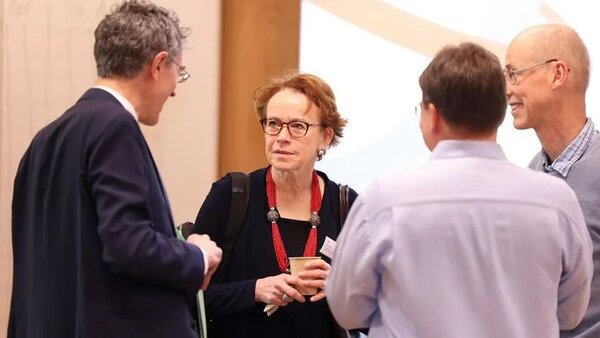
"Über 10 Millionen Menschen erkranken jedes Jahr an Tuberkulose (TB). Mit 1,6 Millionen Todesfällen pro Jahr ist die Krankheit nach wie vor eine der grössten Todesursachen der Welt. In den vergangenen Jahren wurden die Bemühungen und finanziellen Mittel zur Bekämpfung von TB von der COVID-19-Pandemie überschattet. Aktuell veranstaltet das Schweizerische Tropen- und Public Health-Institut (Swiss TPH) ein zweitägiges Symposium in Allschwil, um die neuesten Erkenntnisse der TB-Forschung auszutauschen, die Öffentlichkeit zu sensibilisieren und politische Veränderungen anzustossen. Wissenschaftlerinnen, Experten und Entscheidungsträgerinnen diskutieren Erkenntnisse und Ideen, um die weltweiten Bemühungen zur Eliminierung von TB als Problem der öffentlichen Gesundheit bis 2030 voranzutreiben."
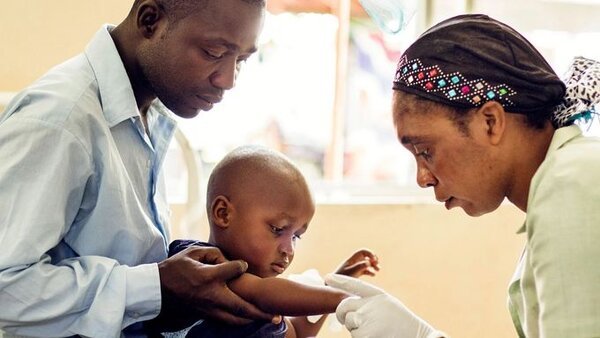
"Global progress against malaria has stagnated and novel medical interventions are urgently needed. In a new publication, researchers from Swiss TPH and the Gates Medical Research Institute describe how modelling evidence is crucial for accelerating the development of new malaria vaccines, monoclonal antibodies and chemoprevention. Results were published today in Communications Medicine from Nature."
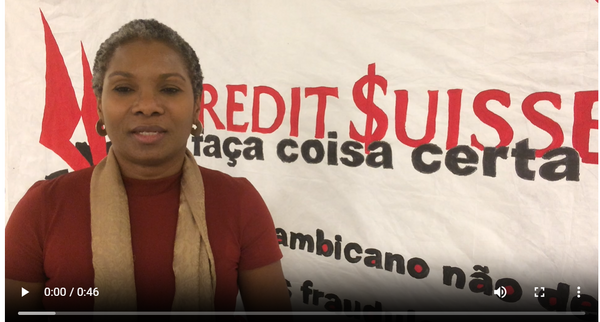
"Bei den hohen Wogen um den Niedergang der Credit Suisse gehen in der hiesigen Berichterstattung die Auswirkungen auf Länder des globalen Südens häufig unter. Alliance Sud macht in einem Artikel dazu eine wichtige Einordnung der Folgen der Bankenskandale. Bereits seit 2017 beschäftigt sich terre des hommes schweiz zusammen mit anderen Schweizer Nichtregierungsorganisationen (NGOs) mit den illegalen Machenschaften von Credit Suisse in Mosambik. Illegale Kredite stürzten Mosambik 2016 in eine bis heute andauernde Finanzkrise. Aus diesem Anlass lancierte terre des hommes schweiz mit mehreren NGO’s im Jahr 2019 eine Petition."

Medienmitteilung zur Parlamentarischen Initiative (22.432)
"Der Nationalrat hat die parlamentarische Initiative (22.432) «Eine Abtreibung(1) sollte in erster Linie als eine Frage der Gesundheit betrachtet werden und nicht als Strafsache» mit 99 zu 91 Stimmen, bei 6 Enthaltungen abgelehnt. Eine Mehrheit des Nationalrats hält offenbar an überholten Wertevorstellungen fest und ist nicht bereit, die Gesetzgebung zu modernisieren."
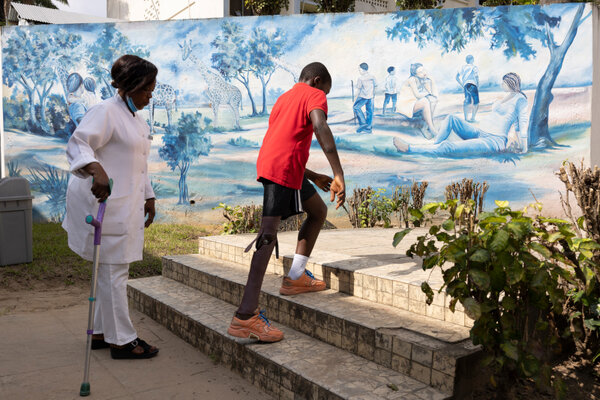
Cette résolution devrait être discutée et adoptée en mai 2023 par l’ensemble des Etats Membres.
Si dans le passé la réadaptation était perçue comme un service réservé exclusivement aux personnes en situation de handicap et « de luxe », aujourd’hui, le vaste besoin dans l’ensemble de la population est bien reconnu et pris en considération. La réadaptation est considérée par les cadres politiques internationales (comme dans la Déclaration d’Astana) comme partie intégrante de la couverture sanitaire universelle, au même rang de la promotion de la santé, la prévention, les traitements et les soins palliatifs. En 2018, Handicap International (HI) a été parmi les organisations fondatrices de la Global Rehabilitation Alliance, qui pendant les années a beaucoup contribué à faire évoluer la conception de ce qu’est la réadaptation. Télécharger le PDF.

Allegra Podcast
"Um die Bevölkerung im afrikanischen Lesotho medizinisch zu unterstützen, fährt regelmässig eine mobile Praxis in abgelegene Dörfer. Mountainbikestar Nino Schurter hat dieses Projekt begleitet. Gemeinsam mit Pierina Maibach, Kommunikationsverantwortliche von SolidarMed, erzählt der Bündner in der neusten Folge von Allegra über mangelnde medizinische Versorgung und bereichernde Begegnungen mit der einheimischen Bevölkerung."
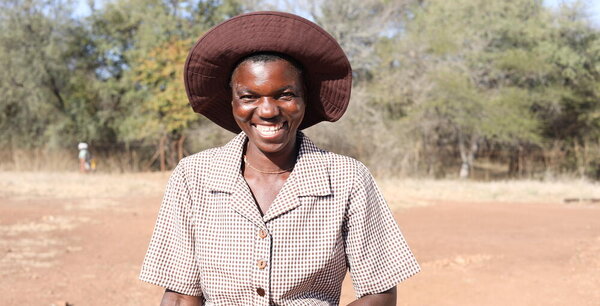
Neues Fokus Magazin mit Schwerpunkt-Thema Teenagerschwangerschaften
"Die erschreckend hohe Zahl von Teenagerschwangerschaften weltweit ist sowohl ein gesundheitliches als auch ein gesellschaftliches Problem. Neben grossen Risiken für Mutter und Kind und einer erhöhten Wahrscheinlichkeit von tödlichen Komplikationen ist auch die soziale und finanzielle Zukunft vieler Mädchen gefährdet."
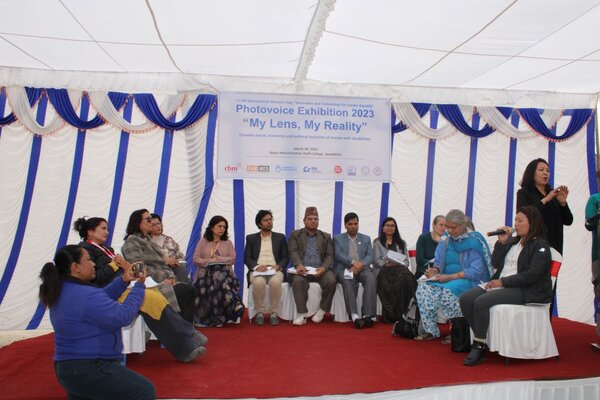
"Anlässlich des Internationalen Frauentags machte unsere Ausstellung in Kathmandu Halt. Sie besteht aus einer Serie von Fotos, die die Erfolge von zehn nepalesischen Frauen mit Behinderungen zeigen. Die Fotos sind das Ergebnis einer Studie des Swiss Disability And Development Consortium (SDDC), das wir mitbegründet haben. (...) Die Studie wurde anlässlich der Überprüfung der Umsetzung der UN-Konvention über die Rechte von Menschen mit Behinderungen durch die Schweiz im Jahr 2022 durchgeführt. Lesen Sie unseren Artikel zu diesem Thema: UNO-Kritik an Umsetzung der Behindertenrechtskonvention in internationaler Zusammenarbeit der Schweiz.
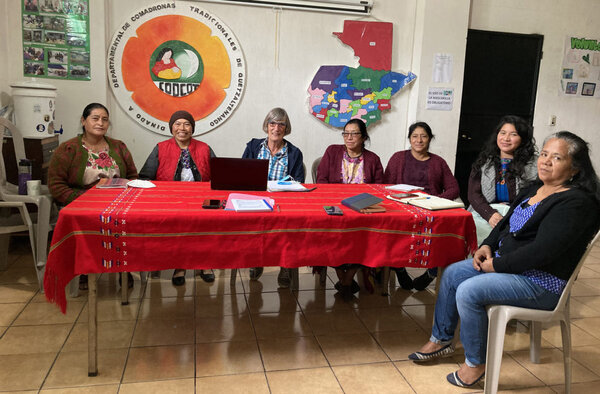
Bulletin nº186
"Le premier bulletin de 2023 de la Centrale Sanitaire Suisse Romande (CSSR) est paru! Après un édito portant sur la résistance indigène au Pérou, un article expose la situation des communautés historiques du Front Farabundo Marti de Libération Nationale (FMLN) au Salvador. Un article revient sur la situation au Guatemala. Enfin, les entraves imposées par les banques en Suisse aux associations suisses sont dénoncées. Bonnelecture!"
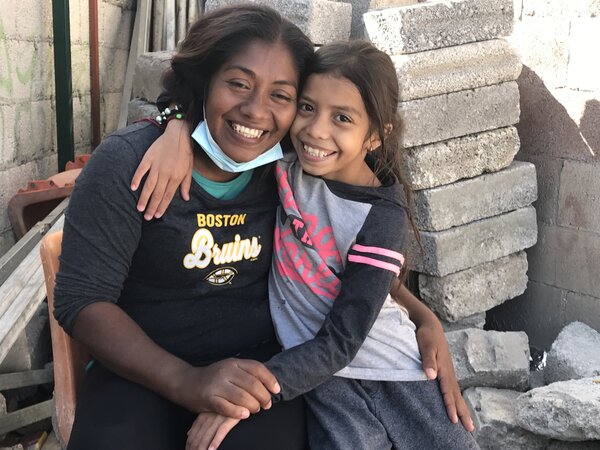
"Von allen Krebsarten, die in den institutionellen Daten der Gesundheitssysteme in Zentralamerika erfasst sind, ist Gebärmutterhalskrebs (CaCu) die häufigste Todesursache durch bösartige Tumore bei Frauen im Alter von 25 bis 64 Jahren, gefolgt von Brustkrebs. Und das, obwohl es sich bei CaCu um eine Krebsform handelt, die bei richtiger Diagnose die besten Heilungschancen bietet. Diese Situation zeigt ein deutliches Problem der späten Diagnose auf. Aus kulturellen Gründen, aber auch wegen des Mangels an Ressourcen für die Früherkennung, werden Vorsorgeuntersuchungen nur sehr selten durchgeführt. Dies führt zu sehr fortgeschrittenen klinischen Fällen zum Zeitpunkt des Krankenhausaufenthalts."
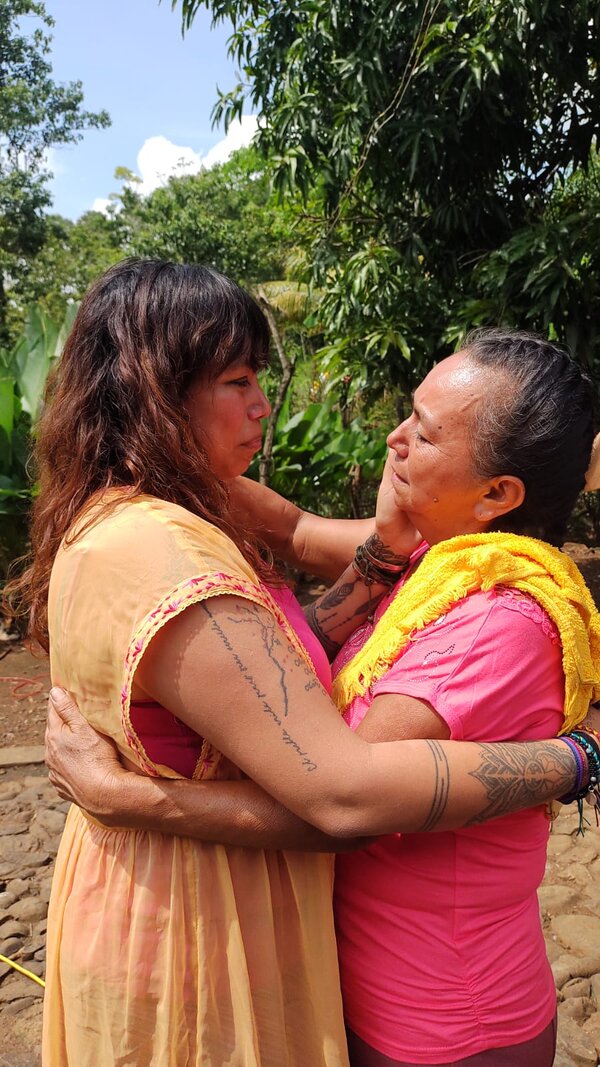
"I disturbi della salute mentale sono in aumento in tutto il mondo. Soprattutto a causa dei cambiamenti demografici, nell’ultimo decennio (fino al 2017) si è registrato un aumento del 13% della prevalenza di questi e altri disturbi da abuso di sostanze. Circa il 20% dei bambini e degli adolescenti nel mondo soffre di disturbi mentali e il suicidio è la seconda causa di morte tra i giovani di 15-29 anni. Nelle situazioni post-belliche, circa una persona su cinque soffre di disturbi mentali."
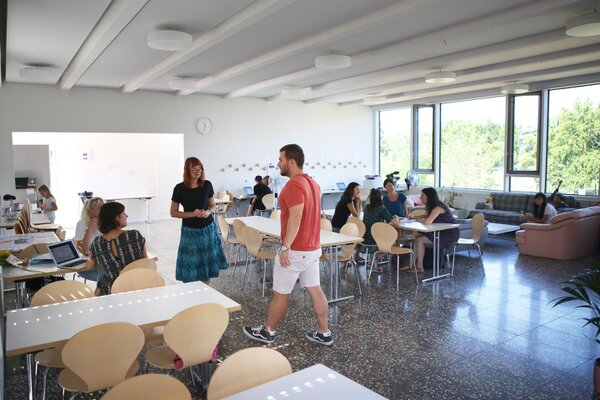
"Eine Arbeit und Wohnung suchen und die Sprache lernen: Für die ukrainischen Geflüchteten in Genf sind das die grössten Herausforderungen. Im Tageszentrum des Genfer Roten Kreuzes werden sie dabei begleitet und finden Entlastung und menschliche Wärme."
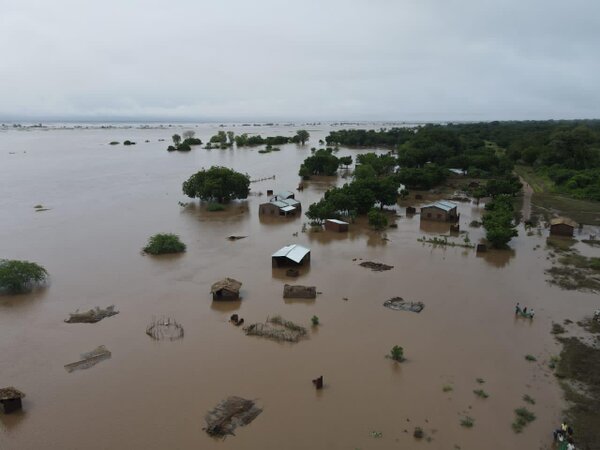
"Zyklon Freddy verschlimmert das Leid in Malawi. Es gibt hunderte von Todesopfern, hunderttausende Menschen haben ihr Zuhause verloren. Noch mehr Menschenleben sind in Gefahr, wenn sich die Cholera weiter ausbreitet. Das SRK verstärkt seine Unterstützung vor Ort. Seit Messbeginn ist Zyklon Freddy der stärkste und am längsten andauernde Sturm. Er führte zu sintflutartigen Regenfällen, starken Winden, schweren Überschwemmungen und Schlammlawinen."

MMS Bulletin #165, März 2023
Klimaverschlechterung, Pandemie und Krieg: Die Welt ist gegenwärtig mit einer Mehrfachkrise konfrontiert, deren Bewältigung Gesellschaften weltweit herausfordern und die internationale Politik zu überfordern drohen. Jede einzelne Krise für sich und in ihrer Wechselwirkung verschlechtern die Determinanten von Gesundheit, wie Ernährungssicherheit, soziale und wirtschaftliche Entwicklung, den gerechten Zugang zur Gesundheitsversorgung und zu sozialen Unterstützungsstrukturen. Das MMS-Symposium thematisierte die Auswirkungen dieser vielfältigen Krisen auf die am stärksten benachteiligten Bevölkerungsgruppen und diskutierte notwendige Antworten seitens der Schweizer- sowie seitens der internationalen Politik. Sind die Grenzen des Wachstums erreicht? Was bedeuten diese Entwicklungen insbesondere für Organisationen, die im Bereich der internationalen Gesundheitszusammenarbeit tätig sind? Die Redner:innen am MM Symposium waren sich einig: Es besteht dringender Handlungsbedarf und die Zeit wird knapp. Weitere Erkenntnisse zu diesen Themen werden in diesem Bulletin vorgestellt.

Medienmitteilung zur Annahme der Motion 22.3144, eingereicht von Elisabeth Schneider-Schneiter
(Basel, den 14. März 2023) Das Netzwerk Medicus Mundi Schweiz ist erfreut über die Annahme der Motion von Nationalrätin Elisabeth Schneider-Schneiter (Mitte), Gesundheit in der internationalen Zusammenarbeit der Schweiz nachhaltig zu stärken. Mit der Motion 22.3144, eingereicht von Elisabeth Schneider-Schneiter am 16. März 2022, wird der Bundesrat beauftragt, die nötigen Voraussetzungen zu schaffen, damit Gesundheit als verstärktes Schwerpunktthema in der nächsten Botschaft zur Strategie der internationalen Zusammenarbeit (IZA-Strategie 2025-2028) aufgenommen wird. Nach zustimmender Stellungnahme des Bundesrats wurde der Vorstoss im Nationalrat am 14. März 2023 angenommen.

New Lancet Series
"In early March, in the wake of the COVID-19 pandemic, nearly 200 people—including former UN Secretary-General Ban Ki-moon—signed a letter strongly criticising pharmaceutical companies for putting a desire to make extraordinary profits before the needs of humanity. Selling publicly funded vaccines, treatments, and tests to the highest bidder resulted in inequities that cost more than a million lives, while private companies made billions of dollars. The signatories called on world leaders to ensure that such an injustice is never repeated. The conflict between profits and health equity is not new. The global health community fought for decades to provide access to antiretrovirals for patients with HIV/AIDS in less-resourced settings."
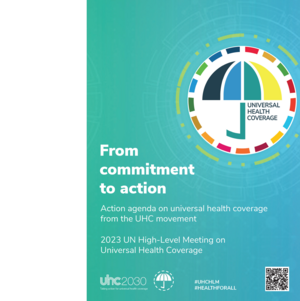
What is the UHC Action Agenda?
"The Action Agenda from the UHC movement is a set of action-oriented policy recommendations that country leaders should implement to strengthen resilient and equitable health systems, advance universal health coverage and health security, and deliver health for all by 2030. The UHC Action Agenda was developed by an inclusive, multi-stakeholder Task Force, which brings together twenty representatives from UHC2030 constituencies and beyond. It was informed by a public consultation which gathered 830 responses from over 100 countries. It was endorsed by the UHC2030 Steering Committee."
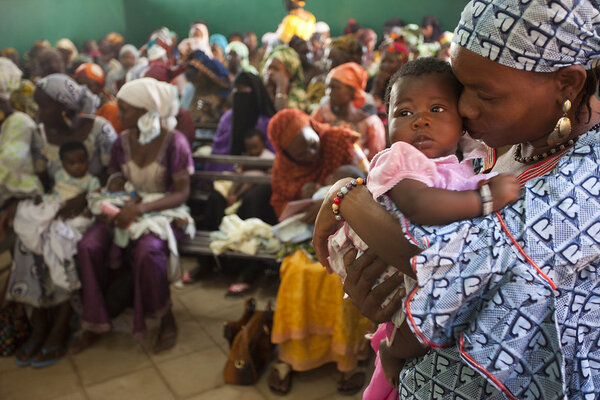
"Primary healthcare (PHC) systems attain improved health outcomes and fairness and are affordable. However, the proportion of PHC spending to Total Current Health Expenditure in Kenya reduced from 63.4% in 2016/17 to 53.9% in 2020/21 while external funding reduced from 28.3% (Ksh 69.4 billion) to 23.9% (Ksh 68.2 billion) over the same period. This reduction in PHC spending negatively affects PHC performance and the overall health system goals. (...) Shifting services from high-level facilities to PHC facilities generates Ksh 198.2 billion (USD 1.9 billion) and yields a benefit-cost ratio of 16:1 in 5 years. Thus, every $1 invested in PHC interventions saves up to $16 in spending on conditions like stunting, NCDs, anaemia, TB, Malaria, and maternal and child health morbidity."

"Calls for justice-oriented approaches to global health gained momentum and visibility during COVID-19. For many years scholars and community leaders have been discussing and debating the ideas of health equity and social justice,1 but with the COVID-19 pandemic the social and health injustices suffered by millions around the world came into a sharp relief in popular news media. Moreover, as it has been repeatedly stated, the pandemic and our responses both revealed and exacerbated injustices that have always been there. Rather than tinkering with the status quo, there is growing momentum behind advocacy for a new approach to global health and building a new global health architecture with fundamentally different foundational principles grounded in justice."

Professor Jayati Ghosh delivers an address to the launch event of the New International Economic Order on the opportunities of a fragmented geopolitical order for a new world to flourish in its cracks.
"Professor Jayati Ghosh delivers an address to the launch event of the New International Economic Order on the opportunities of a fragmented geopolitical order for a new world to flourish in its cracks."
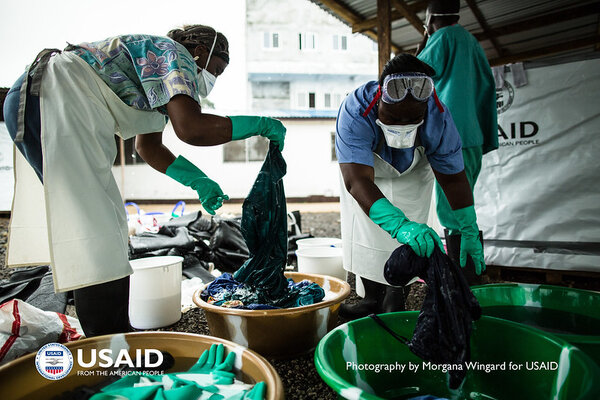
"Strong primary health care, nurturing the health workforce and legal flexibility emerged as key COVID-19 lessons at a high-level roundtable at the Fifth Global Forum for Human Resources for Health, which opened on Monday. Chile gave its healthworkers life insurance, more holidays and extra pay during the pandemic, said Chilean health official Dr Raquel Child Goldenberg. “It was really important to have measures to protect health workers. They were stressed, and they had a hard workload,” explained Goldenberg, Director of the Office of International Relations and Cooperation in the Ministry of Health."

The pandemic turbocharged scientific publishing. While this was widely considered a collective triumph against a global threat, have the harms of pandemic publishing been overlooked?
"Eric Rubin had been in charge for only three months. The editor in chief of the New England Journal of Medicine (NEJM) had come into the role with no previous editorial experience but a career in infectious disease medicine. “Little did I expect my training would be so useful,” he says. (...) Editors felt the pressure of workloads, but also responsibility. Richard Horton, editor of the Lancet, told the New York Times, “We feel very much that we are publishing research that is literally, day by day, guiding the national and global response to this virus. If we make a mistake in judgment about what we publish, that could have a dangerous impact on the course of the pandemic.”
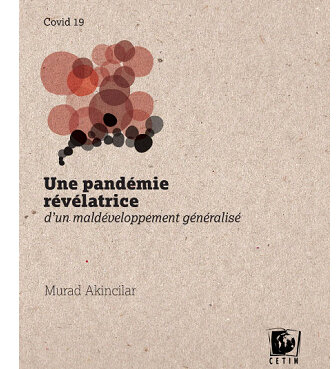
Livre de Murad Akincilar
"La pandémie de Covid-19 n’est pas tombée du ciel, elle se situe dans un champ de causalité marqué par le déclin de la biodiversité, la marchandisation de la nature, et l’accès inéquitable aux soins de santé : une crise multidimensionnelle, construite à travers la violence politique et économique depuis le début des années 1970. Ce livre aborde frontalement le système néolibéral en tant que responsable historico-politique des crimes contre les populations précarisées, les peuples colonisés et les écosystèmes. Il questionne le modèle néolibéral post-crise sanitaire présenté comme plus durable, plus humain, plus inclusif et plus vert: ce modèle est-il acceptable pour les mouvements sociaux? Il s’accompagne d’un cahier de revendications recueillies auprès de dizaines de mouvements sociaux sur tous les continents. A paraître en avril 2023."
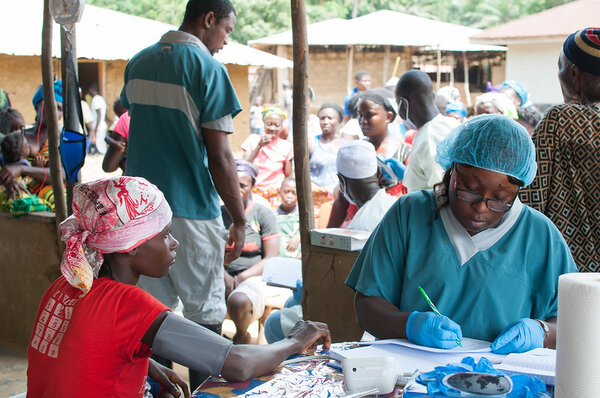
Rich countries still falling short on global code of practice for international recruitment of health professionals
"Eight more countries in the global south have dangerously low numbers of healthcare workers in the wake of the COVID pandemic, a new WHO report has found. The World Health Organization’s 2023 report on “Health workforce support and safeguards” found that some 55 countries now rank below the global median in terms of their density of doctors, nurses and midwives per capita. (...) The WHO report series tracks countries where the number of professionally trained healthcare workers falls below the global median of 49 per 10,000 population. It also examines countries’ rankings in terms of a Universal Health Service coverage index. The negative health, economic and social impacts of COVID-19, coupled with the increased demand for healthcare workers in high-income countries experienced during the pandemic, likely helped trigger more outward migration of healthcare workers from countries that are already suffering from low health workforce densities, the report found."
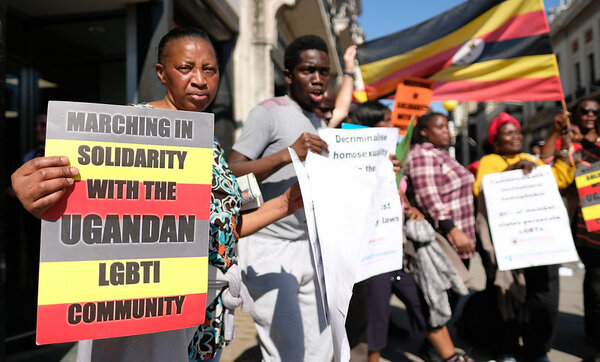
"The UN has urged Ugandan president, Yoweri Museveni, to block an anti-LGBTQ+ bill that has harsh penalties for some homosexual offences, including death and life imprisonment. “The passing of this discriminatory bill – probably among the worst of its kind in the world – is a deeply troubling development,” Volker Turk, the UN high commissioner for human rights, said in a statement. In the US, national security council spokesperson John Kirby said if the law were enacted Washington would consider imposing economic sanctions on Uganda if the bill were signed."
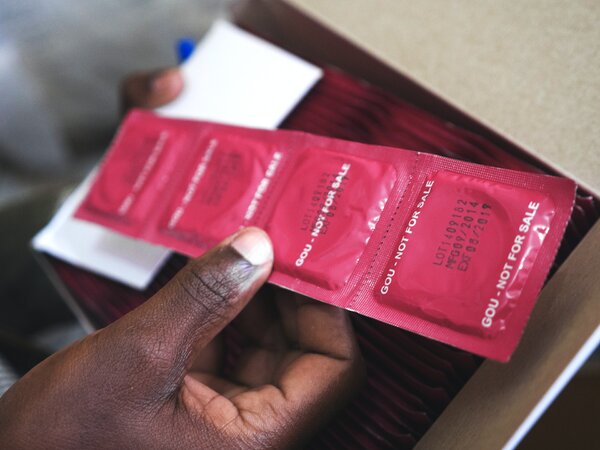
Jüngster Bericht von Countdown 2030 Europe mit der Trendanalyse von 2021-2022
Der jüngste Bericht von Countdown 2030 Europe (C2030E) zur Finanzierung von sexueller & reproduktiver Gesundheit & Rechten sowie zur Familienplanung (SRHR/FP) durch europäische Länder wurde vorgestellt. C2030E ist ein Zusammenschluss von europäischen NGOs, die sich weltweit für einen verbesserten Zugang zu SRHR/FP einsetzen. Die Organisation SEXUELLE GESUNDHEIT SCHWEIZ ist Mitglied für die Schweiz. Ingesamt wurden für den Bericht die Finanzierungsdaten für 2021 und die politischen Positionen von 13 europäischen Regierungen untersucht. So haben diese im Jahr 2021 ihren Beitrag für SRH/FP im Vergleich zu 2020 um 8 % gesenkt und insgesamt 1,385 Milliarden Euro bereitgestellt (103 Millionen Euro weniger als 2020). 10 der 13 untersuchten Länder haben ihre Finanzierung im Vergleich zum Vorjahr entweder erhöht oder beibehalten. Die Bedeutung von SRHR/FP wird nach wie vor von den Ländern betont. Dies spiegelt sich in den politischen und finanziellen Zusagen wider, sowie auch in den politischen Dokumenten, die diese Zusagen vorantreiben. Dieses Kommitment darf jedoch nicht darüber hinwegtäuschen, dass der Bedarf an Unterstützung auch aufgrund der Krisen der letzten beiden Jahre weltweit gestiegen ist und weit mehr getan werden müsste. So hat sich z.B. der ungedeckte Bedarf an Familienplanung von 218 Mio im Jahr 2019 auf 257 Mio im Jahr 2021 erhöht.
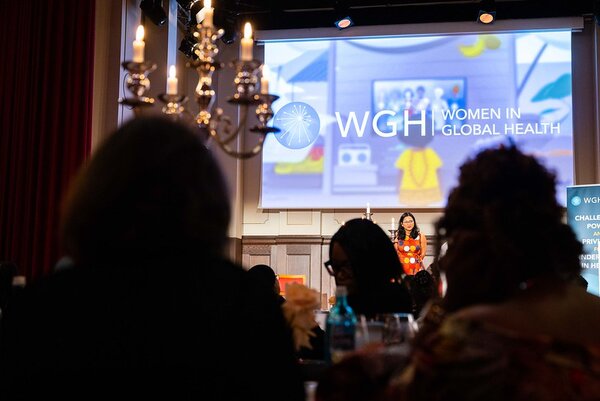
Neuer Bericht von Women in Global Health zeigt Stagnation
Frauen arbeiten an vorderster Front im Gesundheitssektor. 90% des Personals ist weiblich. Hingegen sind Frauen in Führungspositionen im Gesundheitswesen nur zu 25% vertreten. Der neue Bericht - #SheShapes - von Women in Global Health zeigt, dass sich in den letzten 5 Jahren diesbezüglich wenig geändert hat und die Voreingenommenheit gegenüber Frauen in Führungspositionen anhält. Obwohl sich die Länder zur Gleichstellung der Geschlechter auf nationaler Ebene verpflichtet haben, erfolgt die Umsetzung nur langsam und die Corona-Pandemie hat die Geschlechterungleichheit zusätzlich vergrössert. Die UNO berichtet, dass es bei den derzeitigen Fortschritten noch 140 Jahre dauern wird, bis Frauen eine gleichberechtigte Vertretung in Führungspositionen am Arbeitsplatz erreichen werden.

Study by Women Deliver on the effects of COVID-19 on SRHR
"Worsening SRHR have been both a cause and a consequence of increased gender inequalities. This study analyzes global evidence of the impact of COVID-19 on SRHR and highlights youth’s first-hand experiences and perspectives. The insights and perspectives of adolescents and youth are often absent from global evidence reviews. Throughout each phase of this study, Women Deliver intentionally compared the insights and perspectives of adolescent and youth to the global evidence base by gathering qualitative stories from youth advocates in India, Kenya, and Nigeria. Women Deliver firmly believes in meaningful engagement and co-leadership. Youth advocates were involved in research design, primary data collection, generation, and validation, and policy recommendation co-creation. The study found multiple and diverse intersecting impacts at a structural or systems level, community level, and individual level:

Recommendations for gender-sensitive programming
"This technical brief, commissioned by the GIZ-implemented Sector Initiative ‘Global Health’, explores how gender inequalities can affect the way digital health interventions are planned, designed and used. It also considers how such interventions can intentionally or unintentionally impact on existing inequalities or create new ones. The brief was developed on the basis of a literature review and informed by interviews with experts working in GIZ-implemented (digital) health and gender projects. It is aimed at actors, including development partners, who are involved in commissioning, designing, implementing and evaluating digital health programming."
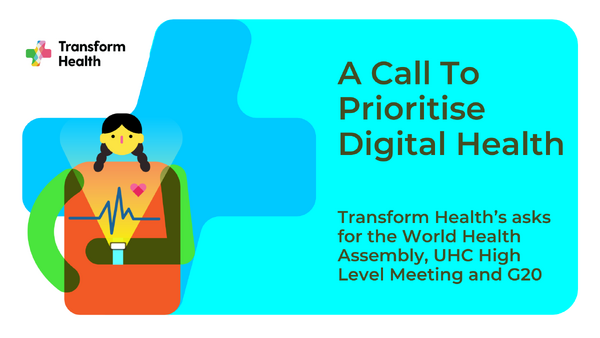
Transform Health’s asks for the World Health Assembly, UHC High Level Meeting and G20
"Digital health is already an important and growing part of most health systems. It offers a huge opportunity to accelerate progress towards achieving the Sustainable Development Goal of reaching Universal Health Coverage (UHC) by 2030. The equitable, inclusive and sustainable digital transformation of health systems can help scale up access to primary health care services, strengthen resilient health systems, close equity gaps to deliver health for all. Despite progress, many countries are not on track to achieve their UHC targets by 2030, with the COVID-19 pandemic having thrown many countries off course."

Graduate Institute - Global Health Centre "The globally unequal distribution of health technologies is an issue of great concern and is high in the public and policy debate. Addressing that problem requires understanding the complex pharmaceutical research and development (R&D) ecosystem. However, information about countries from the Global South is limited. To address this gap, we launched a research collaboration between the Global Health Centre at the Geneva Graduate Institute (Switzerland), BRAC University (Bangladesh), and Universidad de los Andes (Colombia). We will present findings from the three reports, which investigate pharmaceutical R&D capabilities and activities in low and middle-income countries (LMICs), and more in-depth in Bangladesh and Colombia. The reports will be made available a few days before the event."

Medicus Mundi Switzerland In countries around the world, sexual and reproductive rights are under pressure and the right to self-determination especially of women is threatened. In some regions, religious fundamentalists are even mobilising against sexual and reproductive rights. Moreover, there is a movement in various political milieus to question LGBTQIA+ communities and women's rights, including the right to abortion. This calls into question fundamental human rights that are central to ensuring sexual and reproductive health.
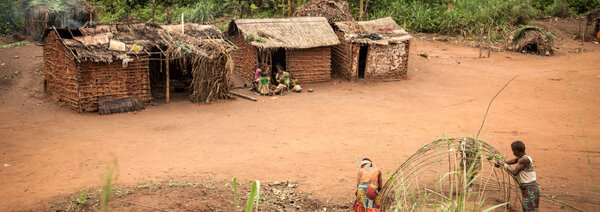
SANDT Neglected Tropical Diseases (NTDs) affect 1.5 billion people worldwide. Populations living in poverty, without adequate sanitation and in close contact with infectious vectors, and women and girls are disproportionately at risk and affected. The right to health is not a luxury — it is a human right. Yet, a third of the people affected by NTDs lack access to treatment, because the medicines that exist do not reach them, or because there is simply no effective medicine for the particular disease. The Swiss Alliance against Neglected Tropical Diseases (SANTD) is very excited to welcome you to its Symposium on 26 April 2023 in Basel. The Symposium will start at 14h. Please find our program and registration link attached.

Graduate Institute - Global Health Centre "COVID-19 exposed major gaps in global pandemic preparedness, prevention and response (PPR) and prompted profound debates on how to reform the global legal landscape to better respond to the next pandemic. As a result, two concurrent lawmaking processes are currently underway under the auspices of the World Health Organization (WHO). They could lead to the adoption of a new pandemic legal instrument and to amendments to the 2005 International Health Regulations (IHR), the existing WHO instrument governing the cross-border spread of infectious diseases. This unprecedented parallel unfolding of two negotiating processes raises many questions. What are the political implications for negotiators? How will power dynamics affect the processes?"
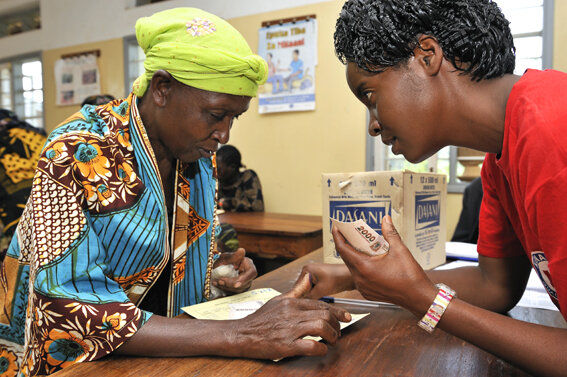
Medicus Mundi Switzerland International health cooperation has a very strong focus on younger people and there is a strong, well-founded call to involve the younger generation more in programme development. However, there is also another reality: the population in the Global South is getting older and the older population itself is also getting older. The MMS Round Table would like to look at whether the actors in international health cooperation are also making their programmes adapted to the needs of older people. And it would like to show which tools, projects and programmes can use to face this trend. An important discussion in the context of the UN Decade of Healthy Ageing.
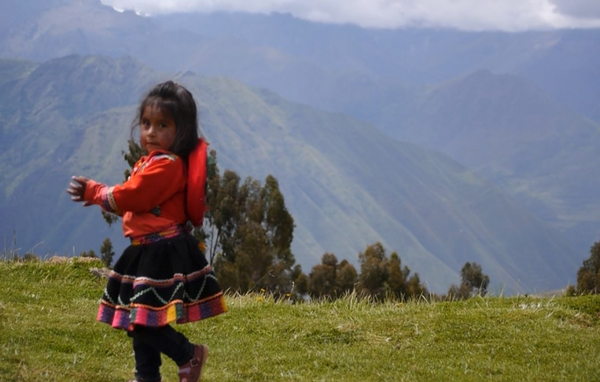
Botnar Research Centre for Child Health (BRCCH) "The BRCCH cordially invites you to join our seminar about advancing child health using digital health support tools and systems. Prof Günther Fink (Swiss TPH, Switzerland) will share his BRCCH consortium’s research progress on supporting the development of children in low-resource settings through the use of novel digital health technology. Prof Valérie D’Acremont (Unisanté, Switzerland) will highlight her work on an e-health system intervention aimed to improve paediatric clinical care, to promote sustainable resource use in a constrained setting and to enhance the detection of outbreaks."
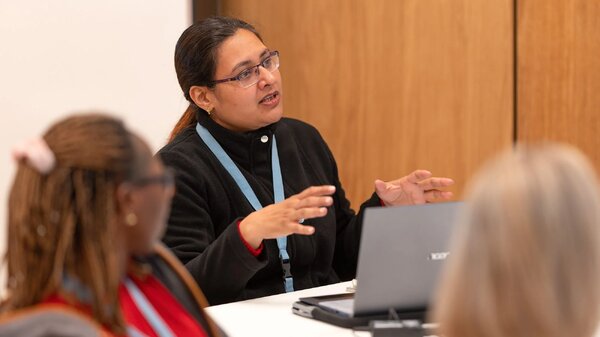
Swiss TPH "The Certificate of Advanced Studies in “Health Systems and Management (CAS HSM)” provides international participants with the competencies to plan sustainable improvements to healthcare systems that take into account diverse cultural settings and social and ethical responsibilities. Participants also acquire the ability to communicate and work in a professional and managerial manner in a multidisciplinary environment. With a focus on practical application and interactive training, participants of the CAS HSM benefit from engaging with experts from various fields and with the international and diverse student body participating in the full-time Diploma of Advanced Studies in “Health Care and Management: From Research to Implementation” (DAS HCM) course."